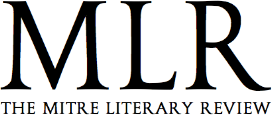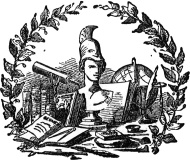A Little Gem from the Master of the Doorstop
Paul Johnson
Weidenfeld & Nicolson – 216pp.
0297847724 – £16.99
In this short, autobiographical portrait of a childhood in the North Staffordshire town of Turnstall in the ‘Hungry Thirties’, Paul Johnson, Spectator columnist and author of such panoramic tomes as A History of The American People, certainly does conjure up a vanished landscape, and a vanished way of life. In contrast to today’s uniform urban sprawl and the enthralment of much of the population to television, here we encounter the unique jolie laide landscape of the Potteries, with smoke, sparks and flames emanating from the pot-banks (busily baking the famous local wares); a world where children made their own amusement, a car was a rare thing and milk was delivered by pony and trap.
Johnson grew up in a middle-class family consisting of mother, father, and elder siblings Tom, Clare and Elfride. Originally they hailed from Manchester, but they moved to Turnstall when Mr Johnson, a sensitive, talented artist, was offered the position of headmaster at the local art school. It was he who taught ‘Little Paul’ to draw and tell the time, and took him to the fascinating pottery factories; but it was his mother who held the biggest influence on the young Johnson.
A friendly and funny woman, already forty when she gave birth to him, Mrs Johnson always treated her youngest like an adult, relating the latest stories concerning the locals and her acute observations to him in precise language: ‘it was like being a child of Jane Austen’. She had a powerful memory, reciting swathes of Shakespeare, song lyrics and poetry to her attentive son.
His elder sisters also contributed to his care. Nature-mad Clare, who ‘ran up trees like a squirrel’ and budding poet Elfride would often take Johnson on adventures to the local park or nearby countryside, elucidating to him such diverse subjects as cloud formation and Clive of India. Unsurprisingly, when at school (first St Dominic’s, where the nuns smelt headily of ‘soap and linen’, then on to the more austere Christian Brothers) Johnson was a voracious reader, and would be reprimanded for quoting insalubrious chunks of Dickens. Another blossoming passion was history, and by eight he was cycling alone to Chester for the day to look around the roman remains.
Detail is not restricted to the Johnson family, with many local characters recalled in delightful details. The two parish priests are especially colourful. Fr Ryan, fierce and demanding, was obsessed with improving his ‘aesthetic mongrel’ of a church (three and a half domes, one Gothic tower), and thought nothing of breaking off mid-Mass and persuading the congregation to trudge round the streets in procession behind the Blessed Sacrament, singing ‘Faith Of Our Fathers’ just to annoy the separated brethren. Meanwhile, young Fr Cocoran, ‘so freckly Gerard Manley-Hopkins could have written a poem to him’, spent his time throwing his shoes at the cats who kept him awake all night with their meowing.
By the end of the Thirties, and the book, all this was fast disappearing. Clare and Elfride were off to university; gas masks were being issued; and the toy soldiers Johnson had played with all his boyhood (with figurines of John the Baptist and the actress Fay Wray) were fading into insignificance against the real soldiers he saw on the street.
This book is a joy to read, and often amusing. Much comedy comes from his childhood misunderstandings of the English language: thus when the horrid Rena Milton boasts after their First Confession that she admitted nine sins, he is perplexed by Sr Angela’s exclamation that ‘she has broken the Seal of Confession’ because ‘the only seal I could think of balanced a big rubber ball on its nose, or, in the Guinness advertisement, a full pint of stout’. Pen and wash illustrations by the author, liberally sprinkled throughout, give an extra personal touch to what is a delightful memoir. Warmly recommended.



